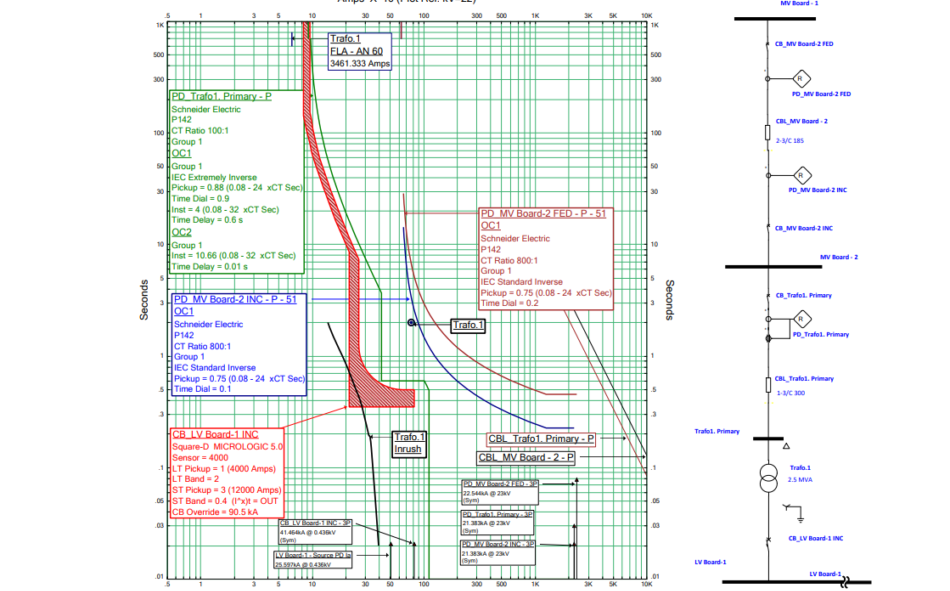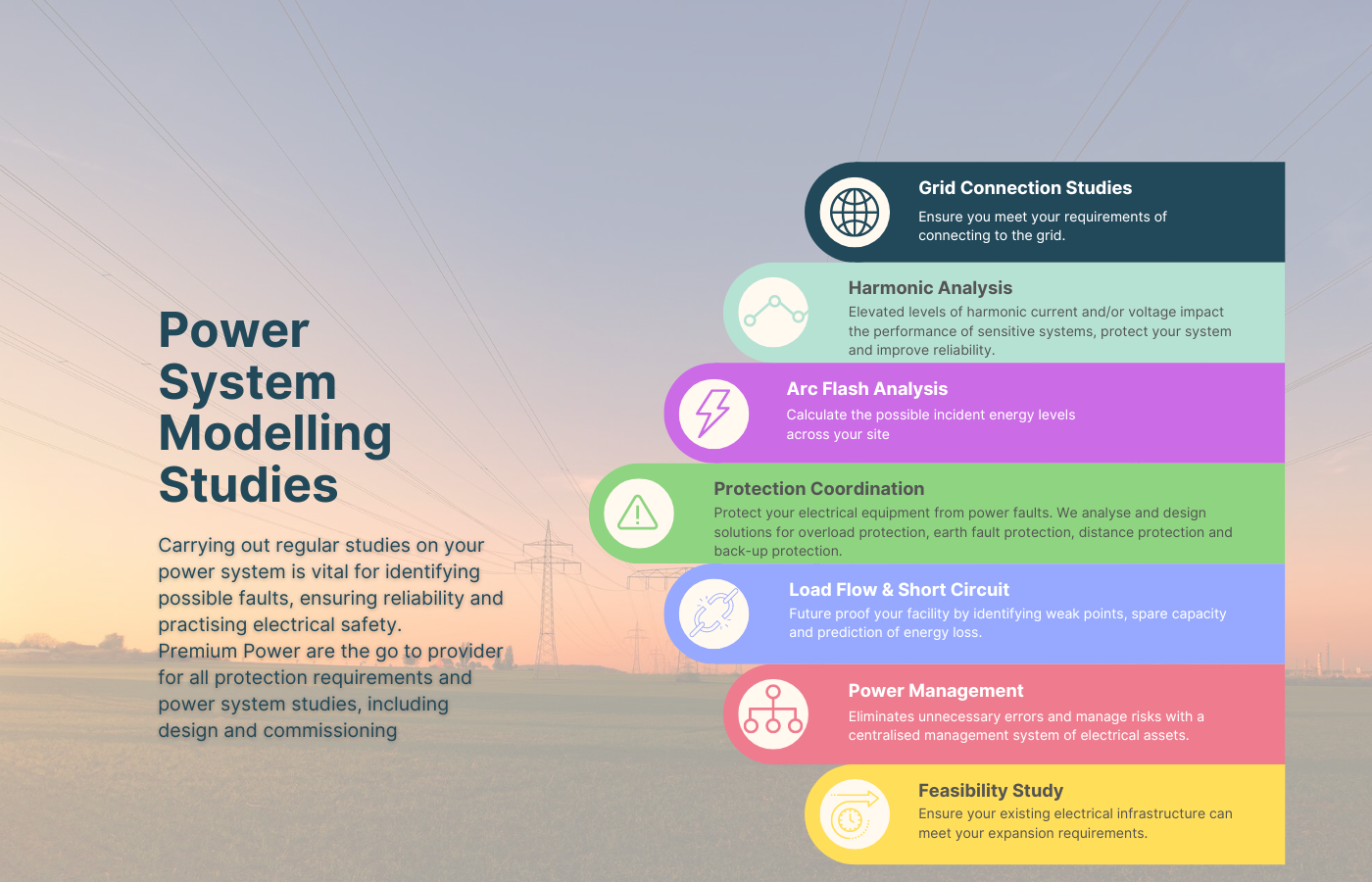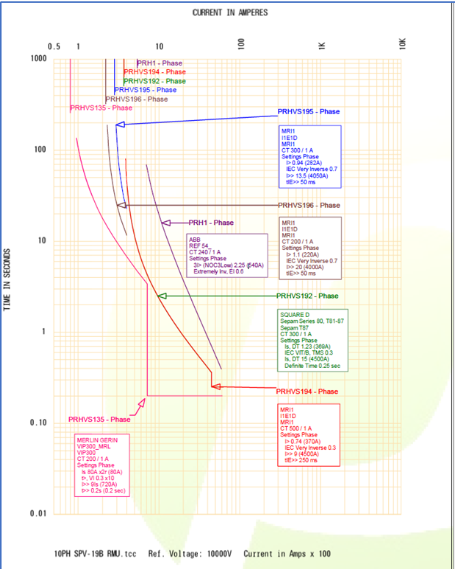POWER SYSTEM MODELLING WHAT YOU NEED TO KNOW
Carrying out regular studies on your power system is vital for identifying possible faults, ensuring reliability, and practicing electrical safety. We recommend using ETAP or SKM modelling software to construct a digital twin replica of your electrical network in order to optimise the design, monitoring, control, and automation of your power system.
Depending on the outcomes or information you require there are a number of specialised studies you can conduct:
- Load Flow & Short Circuit Analysis
- Protection Device Coordination
- Harmonic Analysis
- Transformer Inrush
- Transient Stability
- Arc Flash Analysis
- Feasibility Studies
- Reliability Analysis
- Grid Connection Studies
- Power Management
LOAD FLOW & SHORT CIRCUIT
For new and expanding facilities it is necessary to determine the predicted electrical load growth rate and investigate suitable connection points for future loads. Identifying suitable locations in the electrical network can be utilised for connection of electrical loads, identifying weak points, spare capacity and prediction of energy loss. This will allow the creation of a technically feasible strategy for the successful expansion of the network.


PROTECTION COORDINATION
Isolating faulty components in a power system will help prevent serious power faults. The purpose of a protective device coordination (PDC) study is to model, assess and produce recommendations that will ensure as far as possible so that in the event of a fault the protection device closest will operate first, thus limiting downtime to this part of the system.
ARC FLASH ANALYSIS
Our arc flash study is based on the regulations and recommendations set out in the IEEE 1584 standards. The purpose of the study is to identify the maximum incident energy and arc flash boundary at every point of the network. Understanding the magnitude of the hazard is a key starting point when preparing control measures to protect workers.


HARMONIC ANALYSIS
Power quality problems can contribute to higher energy costs, slower production and faults in your electrical system. Proactively addressing power quality issues from design stage can offer significant reliability and cost benefits. Elevated levels of harmonic current and/or voltage impact the performance of sensitive systems, that are susceptible to harmonic distortion, and reduce the reliability of the plant.
GRID CONNECTION
Ensure your network upgrades and renewable generation are grid compliant through:
- RoCoF studies
- Load flow and reactive power curves
- Fault ride through studies
- Frequency response and dynamic analysis
- System modeling and data capture
- Harmonic studies of network and generation technologies
- P28 voltage dip and flicker studies

Power System Modelling can provide you with the vital information needed to optimise design, monitoring, control, and automation of your power system.
To arrange your free consultation complete the form below or give us a call on +353 1 8105032











